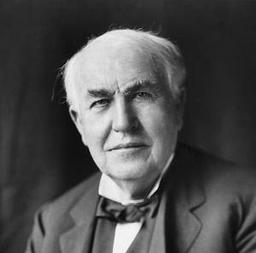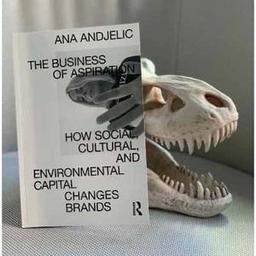
Chris Dixon
Chris Dixon is an American internet entrepreneur and investor. He is a general partner at the venture capital firm Andreessen Horowitz, where he has worked since 2013. Dixon is known for his investments in cryptocurrency and Web3, and he oversees Andreessen Horowitz's crypto vertical. He was ranked #1 on the Midas List in 2022. Dixon grew up in Ohio and earned a BA and an MA from Columbia University, majoring in philosophy, and has an MBA from Harvard Business School.
172 Quotes
"the reality is that ideas do matter, just not in the narrow sense in which startup ideas are popularly defined. Good startup ideas are well developed, multi-year plans that contemplate many possible paths according to how the world changes."
— Chris Dixon
The idea maze"A good founder is capable of anticipating which turns lead to treasure and which lead to certain death. A bad founder is just running to the entrance of (say) the “movies/music/filesharing/P2P” maze or the “photosharing” maze without any sense for the history of the industry, the players in the maze, the casualties of the past, and the technologies that are likely to move walls and change assumptions."
— Chris Dixon
The idea maze"History. If your idea has been tried before (and almost all good ideas have), you should figure out what the previous attempts did right and wrong."
— Chris Dixon
The idea maze"A lot of this knowledge exists only in the brains of practitioners, which is one of many reasons why “stealth mode” is a bad idea. The benefits of learning about the maze generally far outweigh the risks of having your idea stolen."
— Chris Dixon
The idea maze"Some of these theories come from academia (e.g. Clay Christensen) but increasingly they come from investors and entrepreneurs on blogs."
— Chris Dixon
The idea maze"Direct experience. A lot of good startup founders figure out the maze through direct experience, often at work. The key here is to put yourself in interesting mazes and give yourself time to figure it out."
— Chris Dixon
The idea maze"Competition from other startups is usually just a distraction. In all likelihood, they won’t take the same path, and the presence of others in your maze means you might be onto something. Your real competition – and what you should worry about – is the years you could waste going down the wrong path."
— Chris Dixon
The idea maze"Analogy. You can also build the maze by analogy to similar businesses. If you are building a “peer economy” company it can be useful to look at what Airbnb did right. If you are building a marketplace you should understand eBay’s beginnings."
— Chris Dixon
The idea maze"One common strategy for establishing this initial relationship is what is sometimes known as the “thin edge of the wedge” strategy (aka the “tip of the spear” strategy)."
— Chris Dixon
The “thin edge of the wedge” strategy"This strategy is analogous to the bowling pin strategy: both are about attacking a smaller problem first and then expanding out."
— Chris Dixon
The “thin edge of the wedge” strategy"The difference is that the wedge strategy is about product tactics while the bowling pin strategy is about marketing tactics."
— Chris Dixon
The “thin edge of the wedge” strategy"Sometimes the wedge is a “single player mode” – a famous example is early adopters who used Delicious to store browser bookmarks in the cloud and then only later – once the user base hit critical mass – used its social bookmarking features."
— Chris Dixon
The “thin edge of the wedge” strategy"Good startups, however, think about the whole wedge from the start. They build an initial user base with simple features and then quickly iterate to create products that are enduringly useful, thereby creating companies that have stand-alone, defensible value."
— Chris Dixon
The “thin edge of the wedge” strategy"The reason big new things sneak by incumbents is that the next big thing always starts out being dismissed as a “toy.” This is one of the main insights of Clay Christensen’s “disruptive technology” theory."
— Chris Dixon
The next big thing will start out looking like a toy"Disruptive technologies are dismissed as toys because when they are first launched they “undershoot” user needs."
— Chris Dixon
The next big thing will start out looking like a toy"To distinguish toys that are disruptive from toys that will remain just toys, you need to look at products as processes."
— Chris Dixon
The next big thing will start out looking like a toy"Much more powerful are external forces: microchips getting cheaper, bandwidth becoming ubiquitous, mobile devices getting smarter, etc. For a product to be disruptive it needs to be designed to ride these changes up the utility curve."
— Chris Dixon
The next big thing will start out looking like a toy"Wikipedia is literally a process – every day it is edited by spammers, vandals, wackos etc., yet every day the good guys make it better at a faster rate."
— Chris Dixon
The next big thing will start out looking like a toy"Since users’ needs for encyclopedic information remains relatively steady, as long as Wikipedia got steadily better, it would eventually meet and surpass user needs."
— Chris Dixon
The next big thing will start out looking like a toy"But startups with sustaining technologies are very unlikely to be the new ones we see on top lists in 2020. Those will be disruptive technologies – the ones that sneak by because people dismiss them as toys."
— Chris Dixon
The next big thing will start out looking like a toy"We are now at the beginning of the web3 era, which combines the decentralized, community-governed ethos of web1 with the advanced, modern functionality of web2."
— Chris Dixon
Why Web3 Matters | Future"Web3 is the internet owned by the builders and users, orchestrated with tokens."
— Chris Dixon
Why Web3 Matters | Future"When they hit the top of the S-curve, their relationships with network participants change from positive-sum to zero-sum. To continue growing requires extracting data from users and competing with (former) partners."
— Chris Dixon
Why Web3 Matters | Future"In web3, ownership and control is decentralized. Users and builders can own pieces of internet services by owning tokens, both non-fungible (NFTs) and fungible."
— Chris Dixon
Why Web3 Matters | Future"Tokens give users property rights: the ability to own a piece of the internet."
— Chris Dixon
Why Web3 Matters | Future"Tokens align network participants to work together toward a common goal — the growth of the network and the appreciation of the token."
— Chris Dixon
Why Web3 Matters | Future"This fixes the core problem of centralized networks, where the value is accumulated by one company, and the company ends up fighting its own users and partners."
— Chris Dixon
Why Web3 Matters | Future"Web3 introduces a powerful new tool for bootstrapping networks: token incentives."
— Chris Dixon
The Web3 Playbook: Using Token Incentives to Bootstrap New Networks | Future"The basic idea is: Early on during the bootstrapping phase when network effects haven’t kicked in, provide users with financial utility via token rewards to make up for the lack of native utility."
— Chris Dixon
The Web3 Playbook: Using Token Incentives to Bootstrap New Networks | Future"Over time, as the network effect and native utility grows, the token incentives taper off and eventually go to zero, and the world is left with a new, scaled network."
— Chris Dixon
The Web3 Playbook: Using Token Incentives to Bootstrap New Networks | Future"Helium uses the power of token incentives to bootstrap the supply side. It’s worked well so far. The network has over 390,000 nodes worldwide."
— Chris Dixon
The Web3 Playbook: Using Token Incentives to Bootstrap New Networks | Future"Token incentives are effective, but also far fairer than the centralized Web2 model. Shouldn’t the people who helped build a network get to own a meaningful piece of it?"
— Chris Dixon
The Web3 Playbook: Using Token Incentives to Bootstrap New Networks | Future"You don’t need to spend money on marketing when users are genuine owners, love what they do, and love telling other people about it."
— Chris Dixon
The Web3 Playbook: Using Token Incentives to Bootstrap New Networks | Future"meander some in your walk (especially early on), randomly drop yourself into new parts of the terrain, and when you find the highest hill, don’t waste any more time on the current hill no matter how much better the next step up might appear."
— Chris Dixon
Climbing the wrong hill"people tend to systematically overvalue near term over long term rewards."
— Chris Dixon
Climbing the wrong hill"the core internet services will likely be almost entirely rearchitected in the coming decades. This will be enabled by crypto-economic networks"
— Chris Dixon
Why decentralization matters"Cryptonetworks combine the best features of the first two internet eras: community-governed, decentralized networks with capabilities that will eventually exceed those of the most advanced centralized services."
— Chris Dixon
Why decentralization matters"Cryptonetworks are networks built on top of the internet that 1) use consensus mechanisms such as blockchains to maintain and update state, 2) use cryptocurrencies (coins/tokens) to incentivize consensus participants (miners/validators) and other network participants."
— Chris Dixon
Why decentralization matters"As platforms move up the adoption S-curve, their power over users and 3rd parties steadily grows."
— Chris Dixon
Why decentralization matters"When they hit the top of the S-curve, their relationships with network participants change from positive-sum to zero-sum."
— Chris Dixon
Why decentralization matters"Over time, the best entrepreneurs, developers, and investors have become wary of building on top of centralized platforms. We now have decades of evidence that doing so will end in disappointment."
— Chris Dixon
Why decentralization matters"In short, cryptonetworks align network participants to work together toward a common goal — the growth of the network and the appreciation of the token."
— Chris Dixon
Why decentralization matters"Many of the most important software projects in history were created by startups or by communities of independent developers."
— Chris Dixon
Why decentralization matters"If you compared the two products in the early 2000s, Encarta was a far better product, with better topic coverage and higher accuracy. But Wikipedia improved at a much faster rate, because it had an active community of volunteer contributors who were attracted to its decentralized, community-governed ethos."
— Chris Dixon
Why decentralization matters"Centralized systems often start out fully baked, but only get better at the rate at which employees at the sponsoring company improve them."
— Chris Dixon
Why decentralization matters"Decentralized systems start out half-baked but, under the right conditions, grow exponentially as they attract new contributors."
— Chris Dixon
Why decentralization matters"Decentralized platforms, by contrast, often launch half-baked and without clear use cases."
— Chris Dixon
Why decentralization matters"they need to go through two phases of product-market fit: 1) product-market fit between the platform and the developers/entrepreneurs who will finish the platform and build out the ecosystem, and 2) product-market fit between the platform/ecosystem and end users."
— Chris Dixon
Why decentralization matters"In cryptonetworks, these decisions are made by the community, using open and transparent mechanisms. As we know from the offline world, democratic systems aren’t perfect, but they are a lot better than the alternatives."
— Chris Dixon
Why decentralization matters"A popular strategy for bootstrapping networks is what I like to call “come for the tool, stay for the network.”"
— Chris Dixon
cdixon | Come for the tool, stay for the network"2) Instagram. Instagram’s initial hook was the innovative photo filters. At the time some other apps like Hipstamatic had filters but you had to pay for them."
— Chris Dixon
cdixon | Come for the tool, stay for the network"This neglects the years of toil that entrepreneurs endure, and also the fact that the vast majority of startups change over time, often dramatically."
— Chris Dixon
The idea maze"Good startup ideas are well developed, multi-year plans that contemplate many possible paths according to how the world changes."
— Chris Dixon
The idea maze"A good founder is capable of anticipating which turns lead to treasure and which lead to certain death."
— Chris Dixon
The idea maze"A bad founder is just running to the entrance of (say) the “movies/music/filesharing/P2P” maze or the “photosharing” maze without any sense for the history of the industry, the players in the maze, the casualties of the past, and the technologies that are likely to move walls and change assumptions."
— Chris Dixon
The idea maze"The benefits of learning about the maze generally far outweigh the risks of having your idea stolen."
— Chris Dixon
The idea maze"Theories. There are now decades of historical data on tech startups, and smart observers have sifted through to develop theories that generalize that data."
— Chris Dixon
The idea maze"In all likelihood, they won’t take the same path, and the presence of others in your maze means you might be onto something."
— Chris Dixon
The idea maze"Your real competition – and what you should worry about – is the years you could waste going down the wrong path."
— Chris Dixon
The idea maze"Establishing relationships with new users is the hardest part of growing a startup."
— Chris Dixon
The “thin edge of the wedge” strategy"One common strategy for establishing this initial relationship is what is sometimes known as the “thin edge of the wedge” strategy (aka the “tip of the spear” strategy)."
— Chris Dixon
The “thin edge of the wedge” strategy"Sometimes the wedge can be a simple feature that existing companies overlooked or saw as inconsequential."
— Chris Dixon
The “thin edge of the wedge” strategy"Sometimes the wedge is a “single player mode” – a famous example is early adopters who used Delicious to store browser bookmarks in the cloud and then only later – once the user base hit critical mass – used its social bookmarking features."
— Chris Dixon
The “thin edge of the wedge” strategy"Other times the wedge lies on one side of a two-sided market, in which case the wedge strategy could be thought of as a variant of the “ladies night” strategy."
— Chris Dixon
The “thin edge of the wedge” strategy"Good startups, however, think about the whole wedge from the start."
— Chris Dixon
The “thin edge of the wedge” strategy"They build an initial user base with simple features and then quickly iterate to create products that are enduringly useful, thereby creating companies that have stand-alone, defensible value."
— Chris Dixon
The “thin edge of the wedge” strategy"The reason big new things sneak by incumbents is that the next big thing always starts out being dismissed as a “toy.”"
— Chris Dixon
The next big thing will start out looking like a toy"This theory starts with the observation that technologies tend to get better at a faster rate than users’ needs increase."
— Chris Dixon
The next big thing will start out looking like a toy"Obviously, products get better inasmuch as the designer adds features, but this is a relatively weak force."
— Chris Dixon
The next big thing will start out looking like a toy"Social software is an interesting special case where the strongest forces of improvement are users’ actions."
— Chris Dixon
The next big thing will start out looking like a toy"The reason Wikipedia works so brilliantly are subtle design features that sculpt the torrent of user edits such that they yield a net improvement over time."
— Chris Dixon
The next big thing will start out looking like a toy"A product doesn’t have to be disruptive to be valuable. There are plenty of products that are useful from day one and continue being useful long term. These are what Christensen calls sustaining technologies."
— Chris Dixon
The next big thing will start out looking like a toy"When startups build useful sustaining technologies, they are often quickly acquired or copied by incumbents."
— Chris Dixon
The next big thing will start out looking like a toy"Networks get more valuable with more participants, which is great when they are at scale, but cuts the other way when starting out. This is the bootstrapping problem."
— Chris Dixon
The Web3 Playbook: Using Token Incentives to Bootstrap New Networks | Future"Because bootstrapping networks is so hard, it’s likely that there are many networks that should exist — that would improve our collective well-being — but don’t because no one has figured out how to bootstrap them."
— Chris Dixon
The Web3 Playbook: Using Token Incentives to Bootstrap New Networks | Future"Fundamentally what blockchain lets you do is, it lets you write code that can make strong commitments about how it will behave in the future."
— Chris Dixon
The Potential of Blockchain Technology"Philosophically, Bitcoin is very, very conservative for a very good reason, which is it's all about trust and security, reliability, and therefore, from a development point of view, they're conservative. They don't add that much. They don't change it that much. It has a limited programming language that is extremely limited, and that's on purpose for security reasons."
— Chris Dixon
The Potential of Blockchain Technology"So Bitcoin, to the extent it has value, that is enabled by the scarcity of Bitcoins. There will only ever be 21 million Bitcoins. That property of saying there's only going to be 21 million is guaranteed by the blockchain."
— Chris Dixon
The Potential of Blockchain Technology"Another thing you can do with, I call it computers that can make commitments, a blockchain, is you can make commitments to developers"
— Chris Dixon
The Potential of Blockchain Technology"related to that is you can't change the rules on users. So we're seeing, for example, a wave of social networks built on blockchains now where the rules around moderation, deplatforming, all these other things are baked into the system. They're baked into the code and they have governance built in from day one."
— Chris Dixon
The Potential of Blockchain Technology"The fundamental thing that blockchain can do is you can make commitments. Those commitments can be around the scarcity of a currency."
— Chris Dixon
The Potential of Blockchain Technology"Another brand new thing that blockchain can do is it can actually, a piece of code, this is very hard to grok at first, is that a piece of code can actually have money, contain money and hold money."
— Chris Dixon
The Potential of Blockchain Technology"So a blockchain inherently by design takes a performance hit versus a non blockchain computer."
— Chris Dixon
The Potential of Blockchain Technology"Because the very architecture of a blockchain is the core concept is you don't trust a single computer because a single computer can turn evil. And so what you do is you create this game theoretic mechanism, it's called a consensus mechanism, where all those individual computers, any one of which could turn evil, come together every 10 seconds, depends on the system, but let's say 10 seconds, and they vote on the state of the overall system. And the system is designed using game theory in a way that the system as a whole is resilient to any significant portion of the individual computers turning evil."
— Chris Dixon
The Potential of Blockchain Technology"There's also what will the next decade of the most exciting and valuable startups, what will they be focusing on? And I believe most of them will be blockchain oriented, the same way that most were mobile-oriented."
— Chris Dixon
The Potential of Blockchain Technology"Ethereum is the opposite. Ethereum is very, a completely expressive language. It's very similar to JavaScript, most popular language in the world. You can write, really, a broad range of applications. They're doing a complete overhaul of the system. So you may hear about the environmental impact of what's called proof of work mining, which is what Ethereum uses today. They're switching to proof of stake. This is a dramatic change in the system, and that will happen probably in the next 12 months. It'll answer all of the questions around the people that are concerned about environmental impact, and also, it'll improve the performance of the system and security and a bunch of other things. This is a radically different approach to software development, more Silicon Valley-like, frankly, and much more rapid."
— Chris Dixon
The Potential of Blockchain Technology"Then what happened at Ethereum, there started to be, let's say 2016 through '20, a lot of really interesting experiments run that led to this area called DeFi. The most important early one was something called MakerDAO, and MakerDAO, it's a fascinating system."
— Chris Dixon
The Potential of Blockchain Technology"There's some like repayment or underwriting or asset-backing. What does the protocol want?"
— Chris Dixon
The Potential of Blockchain Technology"The short answer is today, all of the DeFi lending is over-collateralized."
— Chris Dixon
The Potential of Blockchain Technology"If I take Dai out, why would I want to do that? Why would I want Dai instead of whatever I put in there?"
— Chris Dixon
The Potential of Blockchain Technology"Some of it's trading. Essentially, it's a way to get leveraged trading. They'll already have Ethereum. They'll get the Dai, and they'll buy more Ethereum or something else or whatever. So some of it's trading."
— Chris Dixon
The Potential of Blockchain Technology"Lending is one of these core functions of finance that is really important. It seems like we're still in the infrastructure phase of all this."
— Chris Dixon
The Potential of Blockchain Technology"So it's about modernizing. It's about disintermediating."
— Chris Dixon
The Potential of Blockchain Technology"The flip side of that, the good side of that in DeFi is it's all open. You can go see the whole state of the system. You can go measure, is the system at risk? Is this and that? Everything's open, right?"
— Chris Dixon
The Potential of Blockchain Technology"I think the promise, modernizing, using all the right demand signals, respecting people's privacy."
— Chris Dixon
The Potential of Blockchain Technology"That's the other thing with blockchains, there's no identity on a block. You choose to have an identity."
— Chris Dixon
The Potential of Blockchain Technology"The way blockchains approach it is the way it should be approached. Everything uses encryption for authentication. Why would you want the system? I think one of them is for the economics of the system, which is remove all these different layers of fees in the middle. A second reason is I think it's a better security model. A third reason, it's a better model for transparency throughout the system and letting people kind of see what's going on. Another reason is what we call kind of composability, and one of the cool things happening DeFi is that each of these protocols I mentioned is an open system that other people can build on top of, and the systems can't by design block other people from building on top of them. People call it money Lego sometimes."
— Chris Dixon
The Potential of Blockchain Technology"One really fascinating thing about Uniswap is there's no servers."
— Chris Dixon
The Potential of Blockchain Technology"There's no server. ""What do you mean, there's no server?"" It runs on the Ethereum blockchain. It's a piece of software on the Ethereum blockchain. That's it."
— Chris Dixon
The Potential of Blockchain Technology"So what we have going on in crypto now is you have this kind of return to the public infrastructure."
— Chris Dixon
The Potential of Blockchain Technology"I would argue that we finally discovered what, actually, a friend of mine calls the native asset class of information networks. That's what tokens are."
— Chris Dixon
The Potential of Blockchain Technology"But look, I believe it's mostly run its course. It's not really working very well for a whole bunch of reasons, including the fact that you end up with very, very concentrated wealth on these networks. You end up with, most importantly, I think, a misalignment between the network participants and the network owners, and the compliments, the network people building around it. There's all sorts of weird incentives that pop up that lead to strife and other kinds of things."
— Chris Dixon
The Potential of Blockchain Technology"And what's so beautiful about tokens is you can design these very granular systems where people get rewarded tokens for using the system, for building software on the system. You can align the incentives of all these different parties to all want to make the network grow and to all work together in tandem. And that's what we're seeing these experiments on."
— Chris Dixon
The Potential of Blockchain Technology"I think Uniswap is very interesting also from that perspective, just as an experiment in a new way to govern software."
— Chris Dixon
The Potential of Blockchain Technology"And the way they'd make money is if they owned a chunk of land. And as that network grew, more people came there. The value of the land would go up. It's sort of similar to that."
— Chris Dixon
The Potential of Blockchain Technology"The other interesting is it can be used for another purpose, which is for an investment. You have people that may want to buy the coins, not necessarily because they themselves are fans or because they believe this is, let's say, an up and coming band."
— Chris Dixon
The Potential of Blockchain Technology"I think the social token concept, it's very early right now, but I think, I believe, if you ask me, what's the next thing that could really get big in crypto? I think that would be high on my list, the way that NFTs were high on my list before and now have gotten big."
— Chris Dixon
The Potential of Blockchain Technology"The internet is the ultimate viral distribution machine. If you lock up your stuff, you don't get to take advantage of that. The right business model on the internet is to find some balance between abundance and scarcity."
— Chris Dixon
The Potential of Blockchain Technology"And that sort of didn't happen until recently, I think. And I think it was because I believe we took kind of a detour through... Basically these new middleman popped up, who were these big social networks who then said, ""No, we're going to have that business model of advertising and algorithmic feeds and all sorts of other things,"" which took you back to the pre 1,000 true fans thing. Now I think we have a real resurgence of Kevin's ideas."
— Chris Dixon
The Potential of Blockchain Technology"What that shows is how powerful it is when you can kind of cream skim and get the people that really love you and give them a business model that they like. And I think part of it, by the way, is a feeling of patronage."
— Chris Dixon
The Potential of Blockchain Technology"I think that's what we're seeing with NFTs today. I think that if you look at some of these..."
— Chris Dixon
The Potential of Blockchain Technology"The second neat thing is I'm interacting directly with him. The first time I bid on something of his, he DM'd me on Twitter and followed me and we started talking and we talk a bunch now and we're kind of friendly"
— Chris Dixon
The Potential of Blockchain Technology"And so now, this is what's really cool. You're going to have this flywheel effect where those people are going to be like, ""Wait a second. I don't have to do font creation for sugar drinks or something."" Or maybe they do that part-time or something. ""But I can actually spend more time doing the thing I love."""
— Chris Dixon
The Potential of Blockchain Technology"Dylan Field from Figma has this great line, which is that Ethereum has a sort of anti-network effect. As it gets more popular, the performance of it gets worse, or gas fees go up or whatever. How do you think about something like Polkadot or Solana?"
— Chris Dixon
The Potential of Blockchain Technology"some people will call them Eth killers. I don't think they're Eth killers. So I would call them other programmable blockchains, and they include Polkadot, Solana, Cosmos, Near, Avalanche, Dfinity."
— Chris Dixon
The Potential of Blockchain Technology"Ethereum is built like Bitcoin to be kind of resistant. Even most countries couldn't attack these systems and take them down. They're really, really resilient."
— Chris Dixon
The Potential of Blockchain Technology"Two, it's going to, really importantly, I hope bring a whole new set of entrepreneurs in the space. We have a shortage of entrepreneurs, if any entrepreneur's listening. I've never been in a space where there's so few. There's so much opportunity. There's plenty of money, plenty of opportunity, plenty of great ideas. We need more entrepreneurs. We need more developers. We need more people. It's a really shockingly small community, when you actually look at the number of people building stuff."
— Chris Dixon
The Potential of Blockchain Technology"A DAO is just a set of smart contracts on Ethereum."
— Chris Dixon
The Potential of Blockchain Technology"DAOs are the way to really scale that collective action out, so that people can do all sorts of interesting things. You could argue a lot of problems in the world are collective action problems. Things around, I don't know, energy consumption and, I don't know, tragedy of the commons things with public infrastructure."
— Chris Dixon
The Potential of Blockchain Technology"What I was talking about before, I think this idea that this is a new way to finance creative activity. By the way, I define that very broadly. I mean, there's the traditional creative things of writing and art, visual art and music, but there's also writing code, open source code."
— Chris Dixon
The Potential of Blockchain Technology"A true fan is defined as a fan that will buy anything you produce."
— Chris Dixon
NFTs and A Thousand True Fans"Crypto, and specifically NFTs (non-fungible tokens), can accelerate the trend of creators monetizing directly with their fans."
— Chris Dixon
NFTs and A Thousand True Fans"Social platforms will continue to be useful for building audiences (although these too should probably be replaced with superior decentralized alternatives), but creators can increasingly rely on other methods including NFTs and crypto-enabled economies to make money."
— Chris Dixon
NFTs and A Thousand True Fans"there are three important reasons why NFTs offer fundamentally better economics for creators."
— Chris Dixon
NFTs and A Thousand True Fans"The first, already alluded to above, is by removing rent-seeking intermediaries. The logic of blockchains is once you purchase an NFT it is yours to fully control, just like when you buy books or sneakers in the real world."
— Chris Dixon
NFTs and A Thousand True Fans"The second way NFTs change creator economics is by enabling granular price tiering."
— Chris Dixon
NFTs and A Thousand True Fans"As with Substack, NFTs allow the creator to “cream skim” the most passionate users by offering them special items which cost more."
— Chris Dixon
NFTs and A Thousand True Fans"But NFTs go farther than non-crypto products in that they are easily sliced and diced into a descending series of pricing tiers."
— Chris Dixon
NFTs and A Thousand True Fans"The third and most important way NFTs change creator economics is by making users owners, thereby reducing customer acquisition costs to near zero."
— Chris Dixon
NFTs and A Thousand True Fans"The thousand true fans thesis builds on the original ideals of the internet: users and creators globally connected, unconstrained by intermediaries, sharing ideas and economic upside."
— Chris Dixon
NFTs and A Thousand True Fans"There are, correspondingly, two ways to challenge them: take the users, or take the money. Crypto and NFTs give us a new way to take the money. Let’s make it happen."
— Chris Dixon
NFTs and A Thousand True Fans"Eventually watching rented movies became the dominant use of VCRs, and time shifting a relatively niche use. Thus, a product that eventually had very strong network effects* got its initial traction from a “standalone use” – where no other VCR owners or complementary products needed to exist."
— Chris Dixon
Designing products for single and multiplayer modes"In many cases this single player mode helped adoption in the early stages when the network effects were not yet strong."
— Chris Dixon
Designing products for single and multiplayer modes"Products with so-called networks effects get more valuable when more people use them."
— Chris Dixon
Designing products for single and multiplayer modes"The idea is to initially attract users with a single-player tool and then, over time, get them to participate in a network."
— Chris Dixon
Come for the tool, stay for the network"The network creates the long term value for users, and defensibility for the company."
— Chris Dixon
Come for the tool, stay for the network"The “come for the tool, stay for the network” strategy isn't the only way to build a network. Some networks never had single-player tools, including gigantic successes like Facebook and Twitter. But starting a network from scratch is very hard."
— Chris Dixon
Come for the tool, stay for the network"The good news is that billions of people got access to amazing technologies, many of which were free to use."
— Chris Dixon
Why Decentralization Matters"The bad news is that it became much harder for startups, creators, and other groups to grow their internet presence without worrying about centralized platforms changing the rules on them, taking away their audiences and profits."
— Chris Dixon
Why Decentralization Matters"Software is simply the encoding of human thought, and as such has an almost unbounded design space."
— Chris Dixon
Why Decentralization Matters"The internet is still early in its evolution: the core internet services will likely be almost entirely rearchitected in the coming decades."
— Chris Dixon
Why Decentralization Matters"This will be enabled by crypto-economic networks, a generalization of the ideas first introduced in Bitcoin and further developed in Ethereum."
— Chris Dixon
Why Decentralization Matters"When they start out, they do everything they can to recruit users and 3rd-party complements like developers, businesses, and media organizations. They do this to make their services more valuable, as platforms (by definition) are systems with multi-sided network effects."
— Chris Dixon
Why Decentralization Matters"The easiest way to continue growing lies in extracting data from users and competing with complements over audiences and profits."
— Chris Dixon
Why Decentralization Matters"We now have decades of evidence that doing so will end in disappointment."
— Chris Dixon
Why Decentralization Matters"In addition, users give up privacy, control of their data, and become vulnerable to security breaches."
— Chris Dixon
Why Decentralization Matters"Cryptonetworks use multiple mechanisms to ensure that they stay neutral as they grow, preventing the bait-and-switch of centralized platforms."
— Chris Dixon
Why Decentralization Matters"First, the contract between cryptonetworks and their participants is enforced in open source code."
— Chris Dixon
Why Decentralization Matters"Second, they are kept in check through mechanisms for “voice” and “exit.” Participants are given voice through community governance, both “on chain” (via the protocol) and “off chain” (via the social structures around the protocol)."
— Chris Dixon
Why Decentralization Matters"Today’s cryptonetworks suffer from limitations that keep them from seriously challenging centralized incumbents. The most severe limitations are around performance and scalability. The next few years will be about fixing these limitations and building networks that form the infrastructure layer of the crypto stack. After that, most of the energy will turn to building applications on top of that infrastructure."
— Chris Dixon
Why Decentralization Matters"An illustrative analogy is the rivalry in the 2000s between Wikipedia and its centralized competitors like Encarta."
— Chris Dixon
Why Decentralization Matters"If you compared the two products in the early 2000s, Encarta was a far better product, with better topic coverage and higher accuracy."
— Chris Dixon
Why Decentralization Matters"But Wikipedia improved at a much faster rate, because it had an active community of volunteer contributors who were attracted to its decentralized, community-governed ethos. By 2005, Wikipedia was the most popular reference site on the internet. Encarta was shut down in 2009."
— Chris Dixon
Why Decentralization Matters"The question of whether decentralized or centralized systems will win the next era of the internet reduces to who will build the most compelling products, which in turn reduces to who will get more high quality developers and entrepreneurs on their side"
— Chris Dixon
Why Decentralization Matters"As a result, they need to go through two phases of product-market fit: 1) product-market fit between the platform and the developers/entrepreneurs who will finish the platform and build out the ecosystem, and 2) product-market fit between the platform/ecosystem and end users."
— Chris Dixon
Why Decentralization Matters"This two-stage process is what causes many people — including sophisticated technologists — to consistently underestimate the potential of decentralized platforms."
— Chris Dixon
Why Decentralization Matters"Centralized platforms have been dominant for so long that many people have forgotten there is a better way to build internet services."
— Chris Dixon
Why Decentralization Matters"Cryptonetworks are a powerful way to develop community-owned networks and provide a level playing field for 3rd-party developers, creators, and businesses."
— Chris Dixon
Why Decentralization Matters"Kelly’s vision was that the internet was the ultimate matchmaker, enabling 21st century patronage."
— Chris Dixon
NFTs and a Thousand True Fans - Andreessen Horowitz"Creators, no matter how seemingly niche, could now discover their true fans, who would in turn demonstrate their enthusiasm through direct financial support"
— Chris Dixon
NFTs and a Thousand True Fans - Andreessen Horowitz"That said, there are three important reasons why NFTs offer fundamentally better economics for creators."
— Chris Dixon
NFTs and a Thousand True Fans - Andreessen Horowitz"In ad-based models, revenue is generated more or less uniformly regardless of the fan’s enthusiasm level."
— Chris Dixon
NFTs and a Thousand True Fans - Andreessen Horowitz"The first, already alluded to above, is by removing rent-seeking intermediaries."
— Chris Dixon
NFTs and a Thousand True Fans - Andreessen HorowitzExplore More Quotes 📚
Want to Save Quotes?
Glasp is a social web highlighter that people can highlight and organize quotes and thoughts from the web, and access other like-minded people’s learning.










-sporring.jpeg&w=256&q=75)






